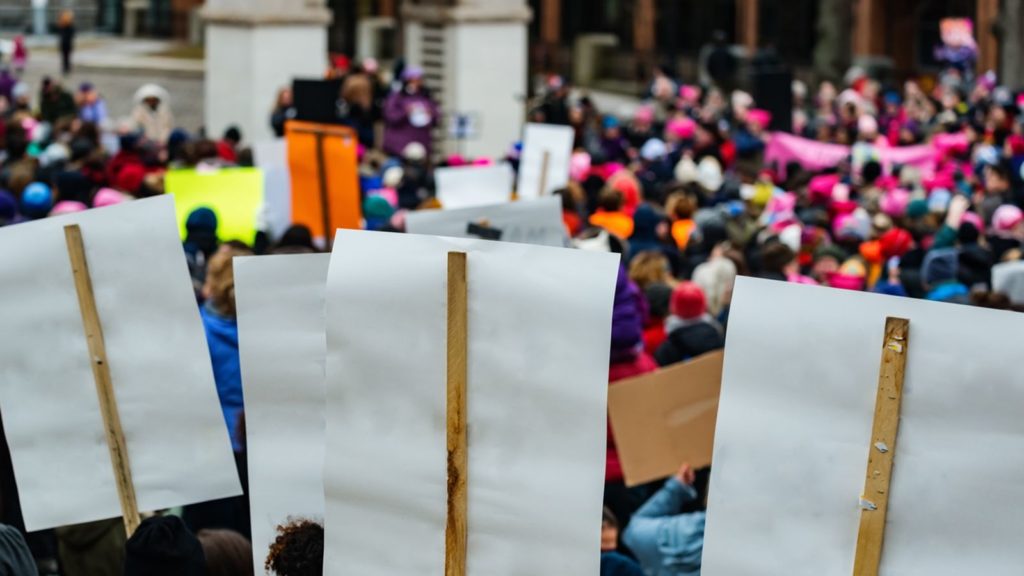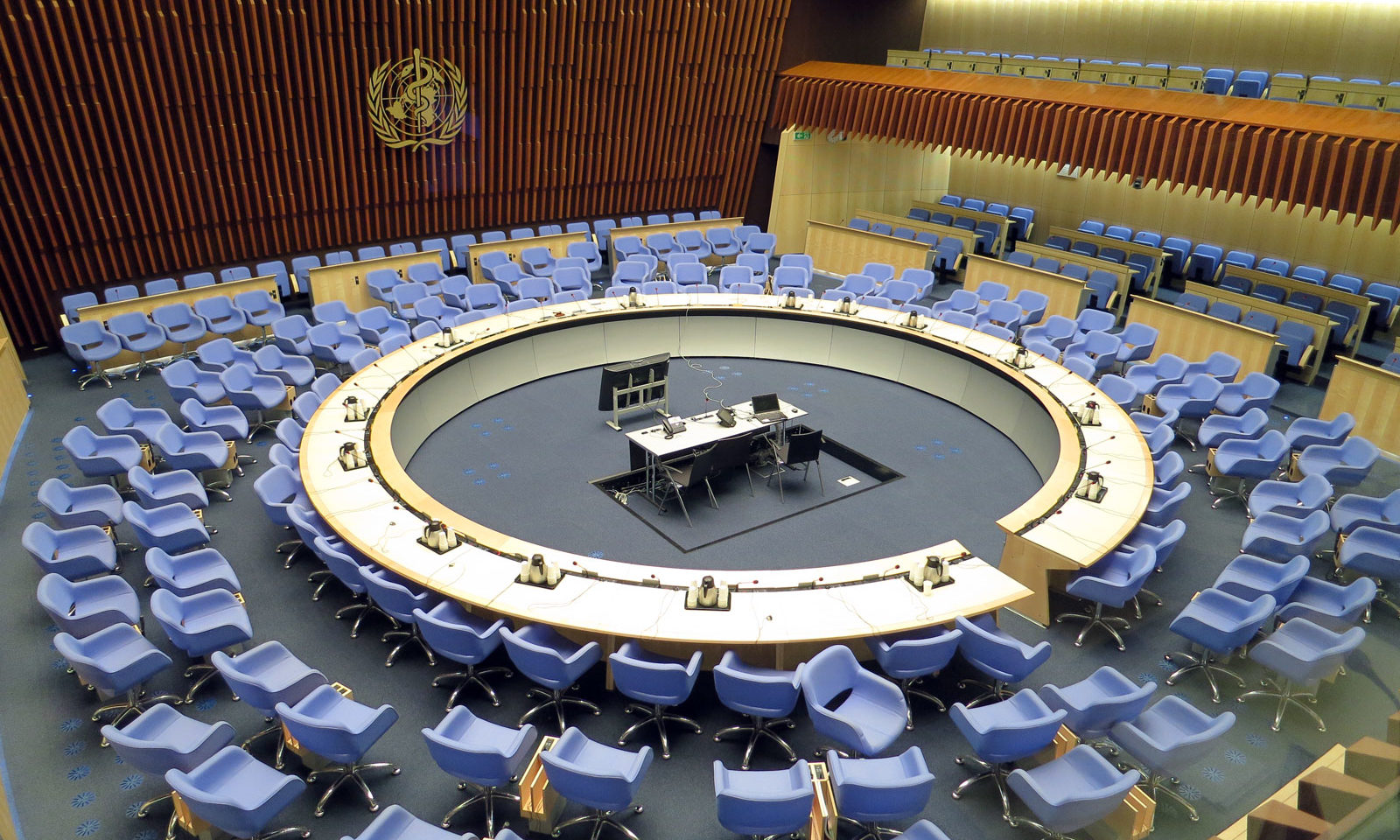The WHO has a crucial role in coordinating the global response to pandemics and health emergencies, but this important work is undermined by strategic incoherence and an ideological approach to policymaking. The US should remain a member to lead reform efforts, writes Philip Stevens
As a UN organisation to which almost every country in the world belongs, the World Health Organization (WHO) has a key role to play in coordinating defences against transnational disease. Yet WHO’s well-documented deficiencies in responding to the Covid-19 pandemic has galvanised its critics, who have long argued it spreads itself too thinly across all kinds of peripheral health topics at the expense of this core mission.
The pandemic has also shone a light on the political nature of the organisation. Covid-19 is the most recent example, but WHO’s skewed approach to policymaking has long courted controversy in areas from malaria prevention to “lifestyle” diseases. For those of us focused on innovation policy, its approach to the intellectual property rights that drive discovery of new medicines is particularly problematic.
G7 members of WHO including France, Germany and the United Kingdom see the Covid pandemic as an opportunity to reform WHO and have been circulating proposals to take to the World Health Assembly. Meanwhile, the United States government has put in its notice to end WHO membership and with it its funding, representing a substantial 22% of WHO’s core (“assessed”) budget. But the US has stated it will remain in WHO if it fundamentally reforms.

Covid-19 has made the case for WHO reform stronger than ever, and there is much that can be done to re-point the organization to make it less divisive, more focused and ultimately more effective global health co-ordinator. The worry is that without US participation, reform efforts will fizzle out and a great opportunity will be lost.
Mission creep
As the UN health agency, the WHO is the only organisation that has the legitimacy and international reach to prepare, monitor and coordinate responses to emerging transnational pandemics. Yet on multiple occasions in recent years it has failed in this vital task, seemingly distracted by its agenda elsewhere.
Following the West African Ebola crisis of 2014 an expert panel convened by Harvard Global Health Institute and the London School of Tropical Medicine criticised the WHO for its “catastrophic” delay in declaring a public health emergency. The response to the emerging Covid problem in late 2019 and early 2020 was similarly sluggish, with the WHO criticised for being slow to declare a pandemic, giving flawed advice such as initial opposition to travel restrictions, and down-playing the risk of human-to-human infection.
Following the Ebola debacle, WHO in 2015 committed new funds and attention to global health emergencies. But by 2020 still only 18% of WHO’s budget was dedicated to pandemics and health emergencies, leaving these vital areas still very much a minority interest for the agency.
Although international disease outbreaks should be one of the WHO’s core activities, in reality it only one of hundreds of policy areas in which it involves itself. The WHO publishes recommendations across nearly two hundred health topics from adolescent health, prisons, to road traffic accidents, sunburn, and suicide.

Jeremy Farrar, director of the UK-based global health research charity the Wellcome Trust, agrees the WHO is being undermined by its inability to focus on a few core issues. “It’s so thinly stretched,” he told Reuters. “There’s arguably no organisation on earth that could cover all those (topics) at sufficient depth to be authoritative.”
At the root of this mission creep is the peculiar way in which WHO is funded. In most UN organisations (except WIPO, the specialised intellectual property agency) funding comes almost entirely from member states dues, normally pegged to the size of their economy. In WHO these “assessed” contributions only constitute 20% of the total budget, with the lion’s share coming from project-based voluntary donations from countries and big NGOs. Thanks to its dependence on these voluntary donations WHO increasingly follows the agenda of its donors, leading to strategic drift, and the involvement in all kinds of areas outside its core mandate.
Long history of ideological policymaking
Aside from mission creep and distraction from its core activities, WHO is a political organisation whose guidance and recommendations are often biased. This matters, as WHO’s policy recommendations are highly influential to domestic policymaking, particularly in developing countries.
There are numerous examples in which WHO has at times behaved more like an ideological activist NGO than a science-based, neutral international organisation upon which member states can rely for authoritative guidance.

In the early 1980s, WHO bowed to environmentalist concerns by recommending malaria be tackled with medicines and bednets, instead of Indoor Residual Spraying with insecticides, despite the fact that the latter approach had proven highly effective in many countries including India and South Africa. Malaria caseloads continued to rise until 2006 when WHO recommended that spraying should start once more.
In 2000, WHO released an international ranking of countries’ health systems, with a view to influencing health reform in its member states. This index led critics to accuse the authors of the index of deliberate methodological bias in order to flatter the effectiveness of state-centric health systems.
And in 2015, WHO faced controversy after its International Agency for Research on Cancer (IARC) identified glyphosate, the world’s most commonly used herbicide, as a probable human carcinogen. The IARC ignored contradictory scientific evidence to arrive at its recommendation, setting it at odds with multiple national regulators and international bodies including the Environmental Protection Agency and the European Food Safety Authority, all of whom have declared the chemical non-carcinogenic.
All this comes against a backdrop of WHO’s continual involvement in a vast array of economic and social issues, in particular its controversial regulatory activism in the fields of healthy eating, alcohol and “lifestyle” diseases.
WHO’s biased view of Intellectual Property Rights
WHO’s mission creep into areas outside its core mandate have been particularly divisive on the topic of the intellectual property rights (IPRs) that drive discovery of new medicines. Despite IPRs falling more properly within the mandate of the World Intellectual Property Organization (WIPO) and the World Trade Organization (WTO) (which administers the TRIPS Agreement), WHO over the last few decades has pushed hard to weaken and reinterpret existing laws around IP through a series of nonbinding declarations, guidelines, recommendations and other forms of soft law. Although WHO hasn’t put forward any new treaties or similar instruments of hard law, the norms and guidance that come out of WHO exert enormous influence on the domestic policies of member states, especially developing countries. What WHO says really does matter.
The influence of certain countries and NGOs has led WHO to adopt a partial and one-sided view of IPRs. Its pronouncements and policy initiatives almost always ignore positive evidence about IPRs, instead viewing them as a zero-sum threat to public health that must be pushed to one side.
A case in point is the WHO’s Roadmap for Access to Medicines, Vaccines and Other Health Products 2019-2023, the culmination of many years’ World Health Assembly resolutions promoted by a loose coalition of NGOs and developing countries.
This Roadmap takes aim at IPRs, mandating WHO to encourage member states to override medicine patents via “compulsory licenses”, and deploy as often as possible other flexibilities to patent rights contained in the WTO TRIPS Agreement – even if it means stretching the legal interpretation of those flexibilities.
This is problematic on many levels, not least the limited evidence that compulsory licenses are an effective way to promote better health, especially in the face of the multi-faceted governance, funding and health systems issues that prevent patients in developing countries from getting the medicines they need.

Advocacy of anti-IP measures such as compulsory licensing is extremely controversial among many WHO’s Member States and compromises the secretariat’s impartiality, involves it in needless ideological disputes and further undermines its credibility in other important areas.
The Roadmap also mandates WHO to support its member countries in removing all medicines-related IP provisions from Free Trade Agreements (FTAs) they negotiate. Given that many countries’ health-related IP is based on the minimum standards contained in the increasingly elderly WTO TRIPS Agreement, such advice is backwards-looking and tantamount to instructing developing countries to stay out of one of the fastest growing and highest value areas of the global economy.
Aside from the Roadmap, the WHO convenes an annual “Fair Pricing Forum”, which provides a UN-stamped platform for discussion on the latest thinking on circumventing pharmaceutical IP. And even in the Covid-19 pandemic the WHO secretariat has moved against IP, partnering with the government of Costa Rica to create the Covid Technology Access Pool (C-TAP). This attempt to boost Covid treatment and vaccine R&D and access needs participants to share (and forego) all their Covid-related IP. But why expend all this energy and money on such an initiative when there are already huge levels of private and public sector Covid R&D collaboration taking place within the existing global IP framework? There is no obvious answer, except a Secretariat willing to accept and pursue ideological anti-IP initiatives, no matter how spurious.
In 1983 the regulatory economist Bruce Yandle put forward the concept “Bootleggers and Baptists” to explain how new regulations often arise thanks to the support of quite different morally and economically interested parties. In the case of alcohol prohibition, baptists supported the ban for moral reasons, while bootleggers clearly profit, so both have a motivation to lobby in the same direction.
Similar forces may be at play in the IP debate at WHO. Much of WHO’s IP-sceptic agenda has been driven by member states with large industrial interests in generic drug manufacturing, notably India and Brazil and to a lesser extent South Africa. Meanwhile, ideologically-motivated anti-IP NGOs also coalesce around WHO, using it as their preferred forum for effecting policy change. The two groups often push in the same direction, with the member states sponsoring resolutions at the World Health Assembly, while the NGOs work behind the scenes in Geneva to brief developing country delegations, coordinate activities around key policymaking meetings; and provide technical assistance to developing countries as they develop IP policy proposals.
WHO needs greater diversity of viewpoints
Part of the problem with WHO’s approach to policymaking, particularly in the field of IPRs, is that it disregards evidence that does not fit in with its world view. There is a growing body of evidence that links robust protection of IPRs to economic growth, human development and faster access to new health technologies, yet WHO never publishes recommendations or guidance on how countries can improve the quality and efficiency of their intellectual property systems.
Intellectual Property Rights are a technical subject, with the deepest knowledge often found in the private sector, particularly on issues surrounding the commercial application of IPRs in developing countries. Another recent WHO initiative – the Framework for Engagement with Non-State Actors (FENSA) – makes it difficult for WHO to stay in touch with how IPRs work in the real world by creating barriers to dialogue with the private sector. Originally created as a way to prevent conflicts of interest and undue influence on policymaking, in reality FENSA has added layers of complexity and process to consultations with external parties. Maybe this is why WHO’s pronouncements sometimes appear to have been made in a vacuum.
Take WHO’s 2018 technical report on the pricing of cancer medicines. This report omitted key considerations in the pricing and value of medicines and made recommendations that could well end up being counterproductive to the objective of promoting access to medicines in lower and middle-income countries. Given the one-sided nature of the document, it seems unlikely that anyone with commercial knowledge of the topic was consulted.

More recently, a failure to bring along a wide range of stakeholders can be seen in WHO’s launch of its C-TAP and its accompanying “Solidarity Call to Action”. Unsurprisingly, no manufacturer has yet tried to use it to share any COVID-19 technology. The initiative has no official support from WHO member states where meaningful Covid vaccine research is taking place, and no support from the private sector or non-profit organisations involved in medicines R&D (with the exception of DNDi).
It seems unlikely that WHO will have consulted widely to come up with an initiative that has such narrow support. C-TAP already looks like a botched initiative that wastes time and energy, while failing to make any impact on fighting the pandemic.
WHO must get back to basics
While these problems are not new, the Covid pandemic has given new urgency to efforts by its members to reform WHO. In a resolution adopted in May 2020, the WHA called for a review of the WHO’s response to Covid-19, with WHO Director-General Tedros announcing the establishment of an independent review panel. Meanwhile, G7 countries plan to put forward their own reform proposals at the November World Health Assembly, with the goal of increasing WHO’s operational efficiency and ensure full transparency of information about disease outbreaks both on behalf of WHO and its member states.
Such efforts are welcome. WHO must get back to basics if it is to remain a meaningful player in an increasingly crowded global health policy scene. It needs to focus on core issues such as pandemics and universal health coverage, instead of spreading itself thinly over a ballooning number of policy areas. There is really little need for WHO to play anything more than a supporting role in IP policymaking given that the expertise and mandate more properly belongs with WIPO and WTO.
Above all, WHO must remove ideology and activism from its policymaking, which must be transparent, grounded in science and a fair consideration of all available evidence.
America’s key role in WHO reform
Unfortunately, the impending departure of the United States from WHO complicates reform in two main directions.
First, US absence means WHO is likely to continue being distracted by all kinds of peripheral issues. To regain its strategic focus, it needs to move away from the “pay to play” model forced on it by reliance on voluntary donors, towards a larger, more predictable core budget coming from assessed contributions of member states. But without the US, the WHO will lose nearly a quarter of its core budget, further entrenching the importance of voluntary donations. It is true that some countries have stepped up to the plate to increase their core funding to WHO (notably Denmark, which in September announced a doubling of contributions to US$11.1m). Gestures like this, while welcome, cannot cover the gap left by US funding.
Second, the US has traditionally acted as a bulwark within WHO and the World Health Assembly against some of the more ideological forays by other member states and the secretariat, tempering WHO’s activities in a range of areas from chemicals to intellectual property rights. While other countries such as the United Kingdom, Germany, Switzerland and Japan have also been strong supporters of science-based, transparent policymaking at WHO, none of them have the weight of the United States, even in coalition. Without the US, WHO’s activities around a range of important economic and global health issues will become even more unbalanced.

China is already exploiting the vacuum left by the US to increase its influence at WHO
The US announcement it is leaving WHO has already proven counterproductive to reform efforts. In August, its proposals to fellow G7 members were rebuffed on the grounds that it is leaving WHO, with Germany and France preferring instead to pursue their own reform initiative. Meanwhile, China is already exploiting the vacuum left by the US to increase its influence at WHO.
A more focused, less ideological WHO is crucial. But it is less likely to happen without the US.
Guidelines for reform
- WHO should narrow its agenda to become the absolute global authority on diseases outbreaks and emergency response. To achieve this, member states should increase their assessed contributions to WHO’s core budget to phase out the voluntary budget. The US in particular should commit to remain in the WHO and use its financial clout to lead these efforts.
- As part of this refocus, WHO should relinquish to more qualified organisations areas in which it has limited expertise and mandate. Notably WHO should transfer its activities on intellectual property rights to WIPO and WTO which have mandate and expertise.
- WHO should ensure all its policymaking activities are grounded in science and consider all available evidence on important policy issues. To achieve this WHO should revisit FENSA to ensure no expert external stakeholders are excluded from entering into dialogue with the organization.


